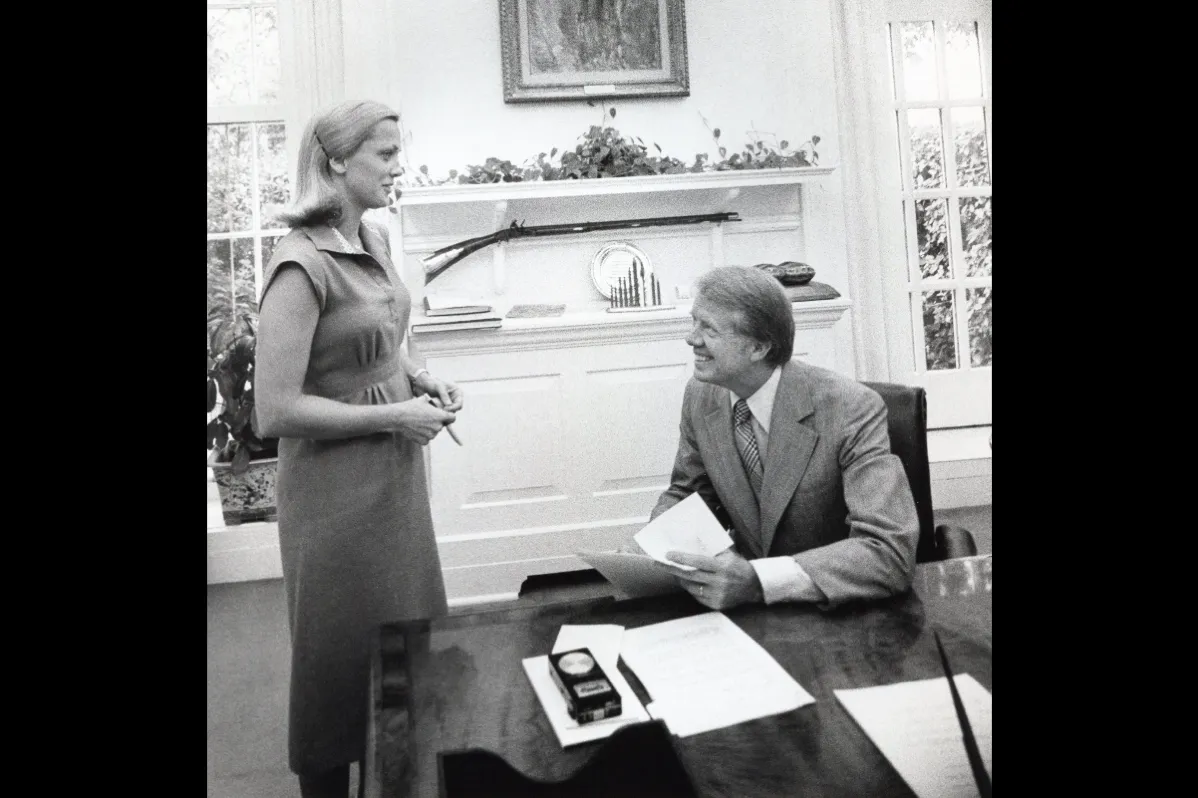Considering the disasters he has been forced to confront in his official capacity as governor – COVID-19, the Mayfield tornado, various Louisville shootings, and a retrograde legislature intent on turning the Commonwealth’s clock back to Mississippi 1950 – Andy Beshear has done an admirable job during his three-plus years in office.
And his efforts appear to be paying off. Despite serving as a Democrat in a vastly Republican state, a Morning Consult poll released this week shows Beshear is the nation’s fifth most popular governor with a 63 percent approval rating. And as a result, money continues to flow like lava into his re-election campaign coffers.
Fair enough. But it doesn’t mean our boy Andy is incapable of doing something unsavory if, perchance, it enhances his odds on election night. Hence his efforts to avoid addressing global climate change in a state that still fancies coal as a means of fulfilling the nation’s energy needs.
The Kentucky Lantern, a welcomed recent addition to the Commonwealth’s news media, edited by my old friend Jamie Lucke, reported this week that the Beshear administration declined to apply for a federal grant of up to $3 million to devise a climate action plan, presumably to address the very real dangers associated with global climate change.
By turning its back on the funding, the state government rendered itself ineligible to collect any portion of a $4.6 billion pot of gold the feds are offering to implement the plans that develop.
Kentucky is one of only four states — the MAGA strongholds of Florida, South Dakota and Iowa being the others — that refused to enlist in the effort, which certainly raises a legitimate question: What gives?
The official explanation provided to the Lantern from the Kentucky Department of Environmental Protection is as laughable as it is odious, with a spokesperson proclaiming that the state government is kicking the can down the road, leaving it up to the largest cities to decide whether or not to apply for the climate-planning funds, explaining they are “best situated to apply for and administer” the dough.
Interesting. Apparently global climate change in Kentucky, according to the Beshear administration’s worldview, is restricted to Louisville, Lexington, and Bowling Green. The rest of the gang, from Pikeville to Paducah, must then be considered safe from natural disasters that result from global climate change, like tornados, floods, and increasingly hot summers that burn the crops – which might be news to those who inhabit most of the state’s territory.
Interesting logic, if that’s what it can be called.
The whole thing raises another question – given the obvious seriousness of global climate change, why doesn’t Kentucky already have a climate action plan in place? One publication, Inside Climate News, recently reported that, according to data from the U.S. Energy Information Administration, Kentucky ranks dead last among the states in energy production from solar and wind, relying instead on coal, the dirtiest energy source imaginable.
Nice plan you got there, Andy.
Beshear’s reluctance to do what’s right and help the Commonwealth reduce carbon dioxide emissions and avert a potential climate disaster can be summed up in one word – coal. Coal companies for decades held incredible sway in Frankfort, emerging as perhaps the Commonwealth’s single most powerful political entity, managing to have its will done with the snap of a finger.
That industry is no longer indomitable. Kentucky ranked third in coal production in 2013, trailing only Wyoming and West Virginia, but output dropped 65 percent by 2022, from 80.4 million tons to 28.5 million tons, while its ranking
among the states fell to fifth.
As a result, employment also declined. In 2012, Kentucky ranked second, behind West Virginia, in coal jobs, numbering 16,513. By 2021, the total had fallen to 4,194. Recent projections show modest growth and some of the decline can be attributed to COVID. But economically speaking, coal has stumbled out of favor because of its impact on the environment. It is no longer the heavy-hitter in Kentucky it once was.
That said, coal still maintains an almost romantic cultural identity in Kentucky, along with horse racing and bourbon, and a lot of folks in the traditional coal areas are unwilling to let it go and instead are waiting on a revival. Like Evangeline’s lover, it will likely never arrive.
Some lessons are hard to learn – especially, it sometimes seems, in Kentucky. The fact that the state lags in wind and solar production and that he remains decidedly unenthusiastic about looking into ways to set a new, environment-friendly path certainly raises questions regarding whether Beshear is the least bit concerned about the presence of global climate change. His dismissive manner speaks loudly.
It merits noting that other states that surpass Kentucky in coal production – Wyoming, West Virginia, Pennsylvania, and Illinois – have signed on to develop climate action plans, leaving Kentucky as an outlier.
So, there exists an even more craven explanation for Beshear’s laissez faire attitude – politics. There’s no reason to believe, given the state’s history, that there’s benefit to be gained from relegating coal to the back pages even though its influence is in obvious decline and that, in many ways, its existence has had a devastating impact over the decades — creating pockets of poverty through its exploitation of workers while decimating huge areas of a proverbial wonderland.
Beshear is undoubtedly keeping tabs on the Republican gubernatorial primary, which will produce the candidate that challenges him for re-election in the fall. One of those contenders is Kelly Craft, the former ambassador to the United Nations under President Donald J. Trump who, as it happens, is married to a billionaire coal baron who maintains operations in Western and Eastern Kentucky.
Craft is making coal a centerpiece of her campaign, arguing against the ongoing closure of old, coal-fired power plants that are usually being replaced by those utilizing natural gas. She argues that “we’re moving away from coal too fast.”
“We must keep the coal plants running!” she wrote in an op-ed for the Lexington Herald-Leader.
And the CO2 billowing, apparently.
Beshear doesn’t seem to disagree, at least not much. He failed to veto – but allowed to become law without his signature — a bill adopted by the Republican-dominated legislature this year intended to make it more difficult for utility regulators to approve efforts to shut down coal-fired electricity
generating plants.
Given his druthers, Beshear, it appears, has decided to remove one potentially problematic issue from the campaign – coal – even though he must realize its time has passed and that its continued burning threatens future generations.
Not cowardly, exactly, but certainly the move of a scaredy-cat. Such is politics, folks.
Beshear has proved himself capable of handling a crisis. Except in one instance.
--30--
Written by Bill Straub, a member of the Kentucky Journalism Hall of Fame. Cross-posted from the NKY Tribune.
Comments








